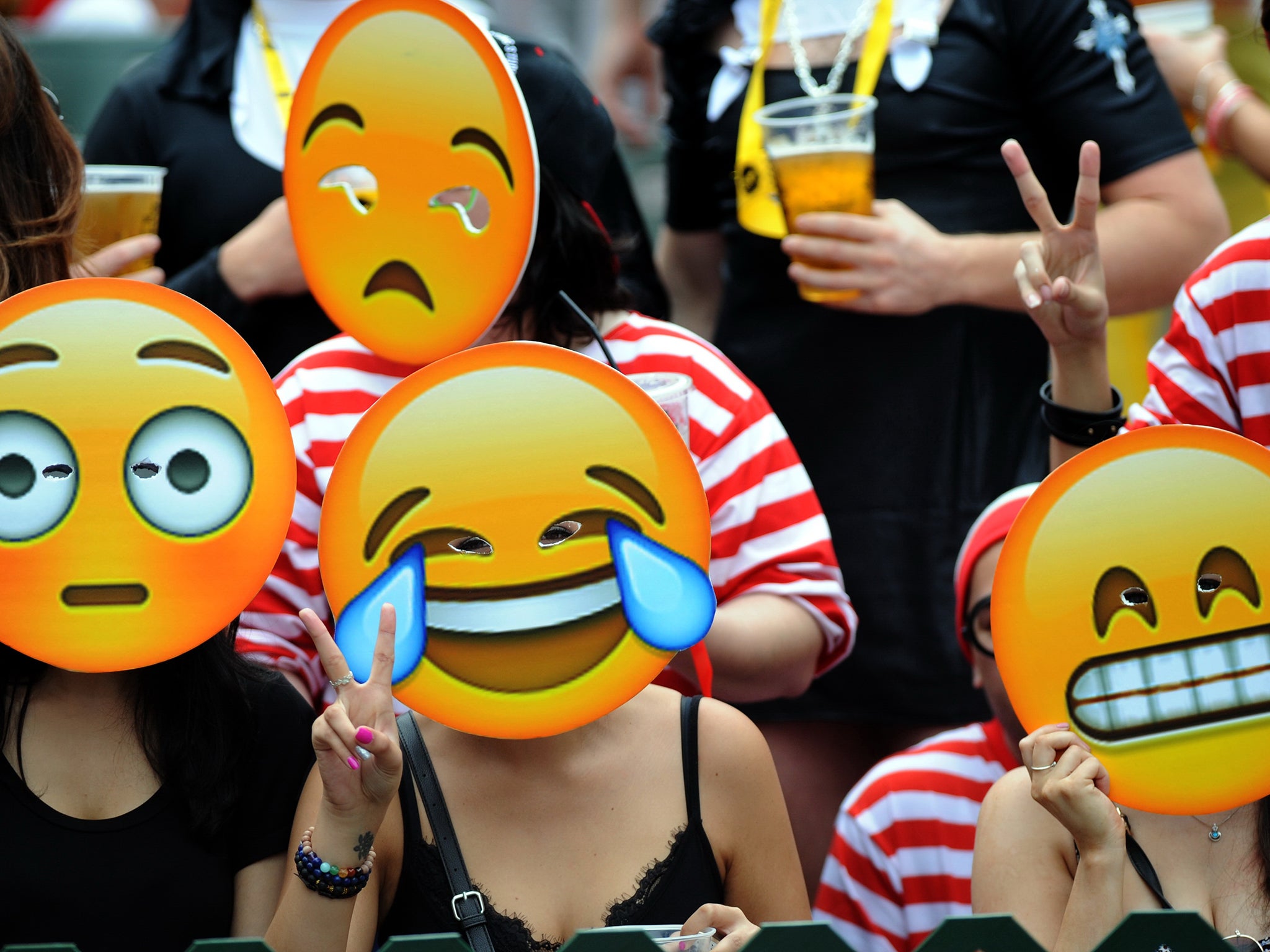Emojis now more popular than acronyms, says Instagram
From appearing in just 10 per cent of Instagram entries in 2010, emojis now feature in nearly half of all comments and captions on the service

Your support helps us to tell the story
From reproductive rights to climate change to Big Tech, The Independent is on the ground when the story is developing. Whether it's investigating the financials of Elon Musk's pro-Trump PAC or producing our latest documentary, 'The A Word', which shines a light on the American women fighting for reproductive rights, we know how important it is to parse out the facts from the messaging.
At such a critical moment in US history, we need reporters on the ground. Your donation allows us to keep sending journalists to speak to both sides of the story.
The Independent is trusted by Americans across the entire political spectrum. And unlike many other quality news outlets, we choose not to lock Americans out of our reporting and analysis with paywalls. We believe quality journalism should be available to everyone, paid for by those who can afford it.
Your support makes all the difference.Omg. Lol is, like, so last century. Or, for those readers still insisting on using words: oh my God, internet slang – including acronyms such as lol for “laughing out loud” – has become decidedly old-fashioned.
Researchers at Instagram, the photo and video sharing app with more than 300 million users, have discovered that cartoon-style “emoji” pictograms are rapidly replacing the likes of wtf and rofl in becoming the language of the internet.
From appearing in just 10 per cent of Instagram entries in 2010, emojis now feature in nearly half of all comments and captions on the social networking service.
This country is in the forefront of the change towards a more picture-based language, with 48 per cent of UK Instagram entries featuring emojis – trailing only Finland on 63 per cent and France on 50 per cent.
In the same time that emoji use has soared, the proportion of entries featuring acronym-based slang has almost halved, from about 10 per cent to around 5 per cent.
The irresistible rise of the emoji appears inextricably linked to innovations in mobile devices, occurring only after emoji keyboards were introduced for iPhones and iPads in 2011 and for smartphones and tablets in 2013.
Pessimists may conclude that technology merely allows us to regress to a form of pictorial language which has more in common with ancient hieroglyphics than the alphabetic writing system pioneered by the Phoenicians in about 1,200BC.
However, Instagram’s Thomas Dimson, who led the research, appeared to have few such reservations. “It is a rare privilege to observe the rise of a new language,” he said. “On Instagram, emojis are becoming a valid and near-universal method of expression in all languages.”
Instagram is not the only platform where emojis – invented in Japan at the end of the 1990s – are rising to pre-eminence. In April 2013, the US Library of Congress accepted “Emoji Dick”, a translation into emoji of Herman Melville’s Moby Dick.
By the time of its launch in August last year, Emojli, an app that allows communication only in emojis, had already signed up 70,000 users, with usernames comprised entirely of emojis.
There are now well over 700 of the icons available to internet users. They can, if they want, enliven their messages with emojis of a man in a business suit levitating, a smiling poo, or what is officially – if coyly – described as “Reversed Hand With Middle Finger Extended”.
Some observers insist that emojis will be used simply to embellish traditional words. The American linguist Ben Zimmer told the New Republic website: “I don’t see it as a threat to written language, but as an enrichment.”
Join our commenting forum
Join thought-provoking conversations, follow other Independent readers and see their replies
Comments